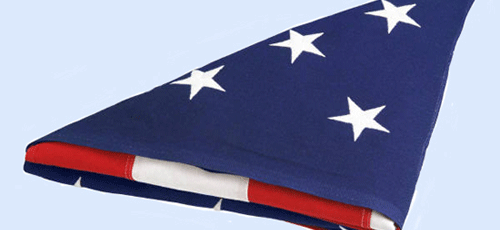
By SUMMER CHIANG, New America Media
SAN FRANCISCO ― Like most immigrant parents, Kevin Guan and his wife, Laurie, foresaw a future for their two sons that involved a first-class college and a decent job, the American Dream to a tee. That’s why they were incredulous when their eldest son expressed a desire to enroll in the United States Military Academy at West Point, the nation’s most high-profile military academy.
“Being a soldier is dangerous,” said Guan, who said that he initially opposed his son’s decision to apply for West Point. The recent suicides of two Chinese American servicemen, and allegations that racism played a part in their deaths, have only heightened their concerns.
“My son told me that Asians make up less than 10 percent of the student body at West Point,” said Guan, who along with his wife has spent the past 20 years operating a small dry cleaner in San Francisco’s heavily Chinese Outer Sunset neighborhood. Their second son is now enrolled in one of the city’s premier public high schools.
According to several popular online college databases, Asians make up just 5 percent of West Point’s total student body of more than 4,400. Blacks account for 6 percent and Hispanics 9 percent. Whites make up the overwhelming majority at close to 80 percent of students, or cadets, as they are called.
Still, despite being in the minority, Guan said his son, Phelan, now in his third year at West Point, assures them that racial tensions are at a minimum in the school. “Although there aren’t many Asians, my son tells me that cadets get along well across boundaries.”
Beyond concerns of racism, however, Guan and his wife said they are more troubled by what they see as the military’s “culture of bullying,” and the potential impact that could have on their son.
That fear comes after news of the death in April of Lance Cpl. Harry Lew, who was found by fellow Marines after having shot himself in the head. Lew, 21 and a native of Santa Clara, Calif., had just arrived in a notoriously dangerous area of Afghanistan and had been beaten severely by fellow unit members after having fallen asleep on watch.
Upon news of his death, Lew’s father, Allen Lew, told the Chinese-language World Journal that from what he had learned from his son, “Chinese Americans in the armed forces are still very isolated… U.S. soldiers still equate them with communism.”
An NPR report from June of last year noted that nationwide, Asians account for the lowest number of military recruits, at just 1 percent of the total. In certain localities, however, and in particular those with large Asian American populations, recruitment numbers are spiking.
Lew’s death was followed in October by that of Army Pvt. Danny Chen’s, 19, of New York. Chen was found with what the military described as a “self-inflicted gunshot wound” to the head in a guard tower in Afghanistan. Like Lew, Chen was beaten and tormented by fellow service members. Friends and family say he was specifically targeted and mocked for his Chinese heritage.
A World Journal report noted that Chen was the only Asian American in his unit.
Soldiers implicated in both cases have been disciplined with what many see as a slap on the wrist. In the most recent decision, Lance Cpl. Jacob Jacoby, one of several soldiers involved in the beating of Lew, was sentenced to 30 days in jail and demoted to private first class.
“Although Jacoby did not directly kill Lew, he may have indirectly led Lew to commit suicide,” wrote Joseph Leung, editor-in-chief of the Chinese-language Sing Tao Daily. “[The] Army’s acceptance of [Jacoby’s] plea deal means it viewed Jacoby’s actions as a minor mistake.”
Leung added that Lew’s death should serve as a wake-up call to government and military leaders for the need to “implement more sound policies regarding bullying and racism in the military. The Chinese community should get together to push for that.”
Some have already begun doing just that.
In January, New York City Councilmember Margaret Chin passed a resolution calling on the Army to institute better cultural-sensitivity training for soldiers. And just this past week, California Congresswoman Judy Chu, who is related to Henry Lew, joined several other representatives in signing a letter asking the House Armed Services Committee to hold hearings on hazing in the military.
“The culture of hazing is very, very deep within the military,” Chu was recently quoted as saying in the San Jose Mercury News. “As a result, even though we do have people saying at the very top it must stop, there is very little enforcement at the ground level.”
“The hazing of Private Danny Chen, that allegedly caused his death, is an urgent call to action,” said Rep. Mike Honda, reported Pacific Citizen.
“I hope that the House Committees on Armed Services and Oversight and Government Reform will take these warnings seriously and hold hearings in order to protect our brave service members from any future danger.”
Bay Area resident Jerry Tzeng agreed. Having come to the United States at age 9, Tzeng studied at Valley Forge Military Academy in Pennsylvania for three years, during which time, he said, he routinely witnessed bullying and hazing-type activities. “It happened to all ethnic groups; no matter whether you were in the majority or minority.”
That may be small comfort for the Guan family. Phelan’s father said his son will have to serve a minimum of five years after he graduates. Referencing the recent suicides, he adds, “I wish the government would do something so I don’t have to worry about my son.”

